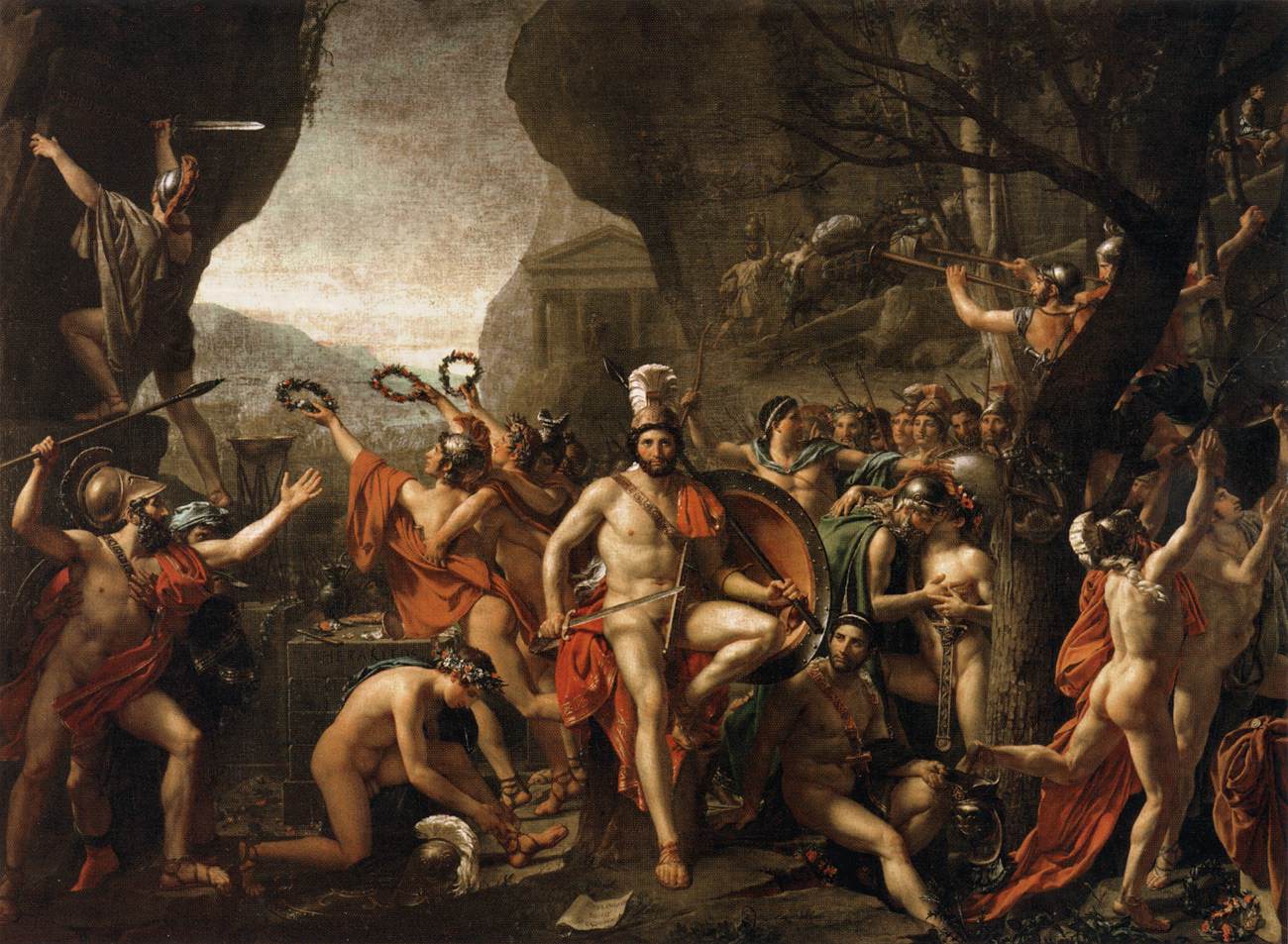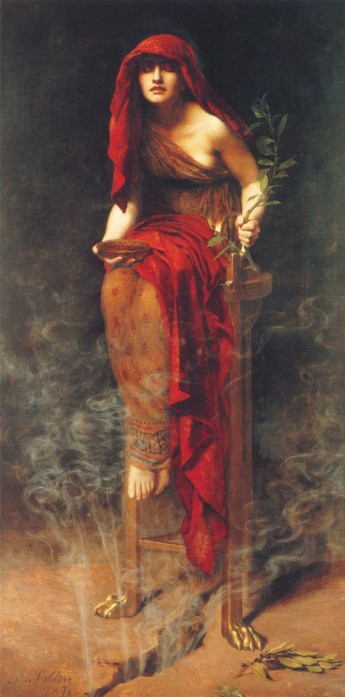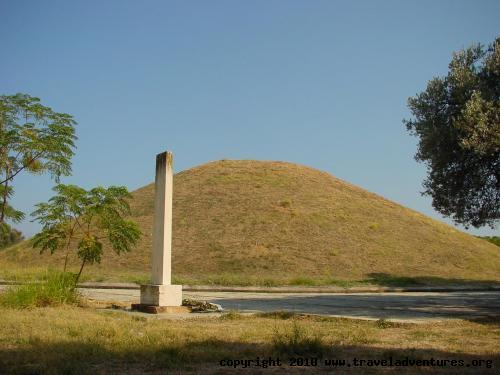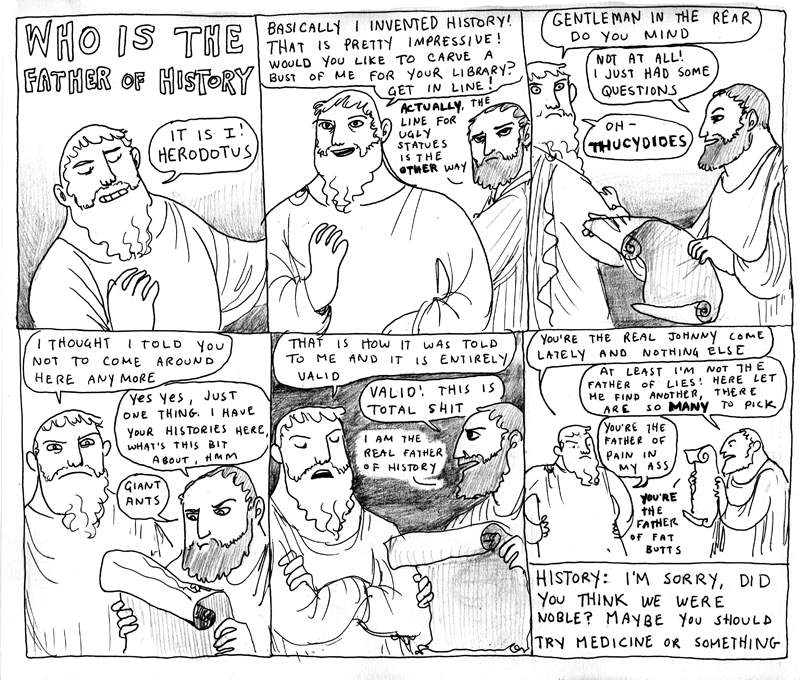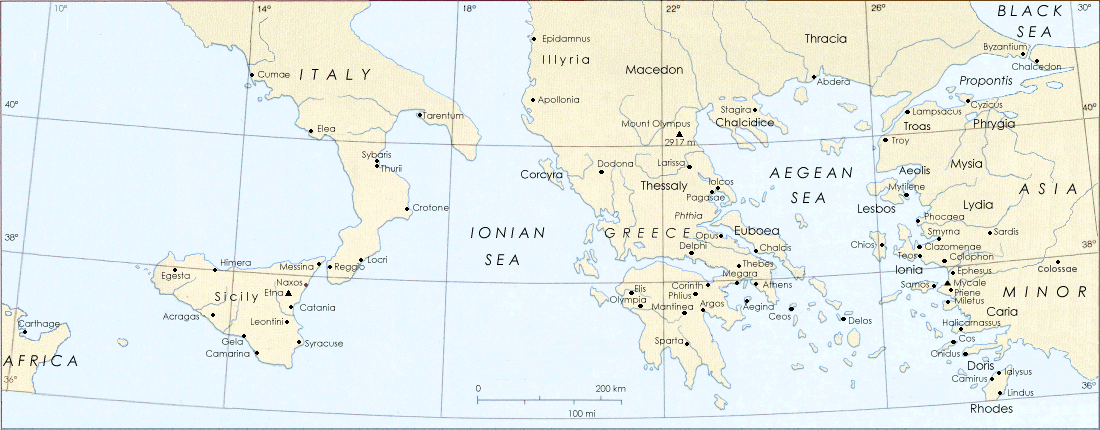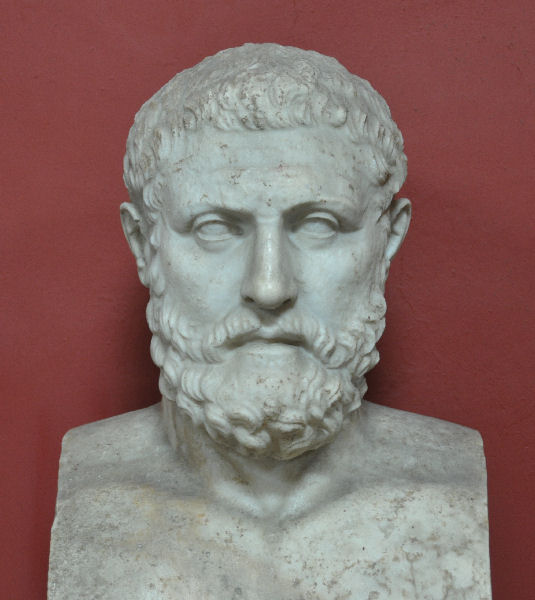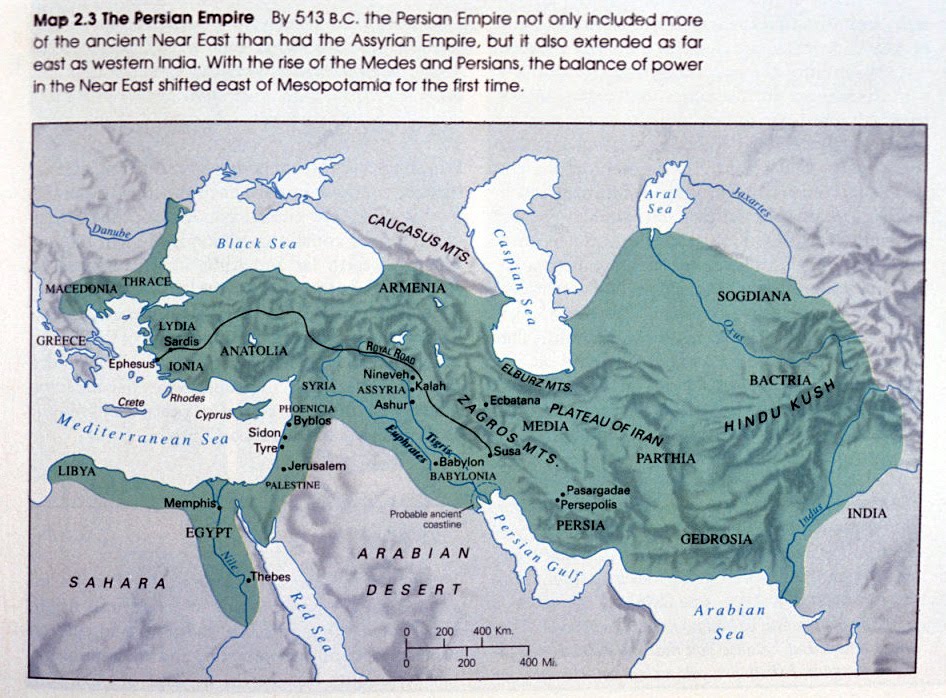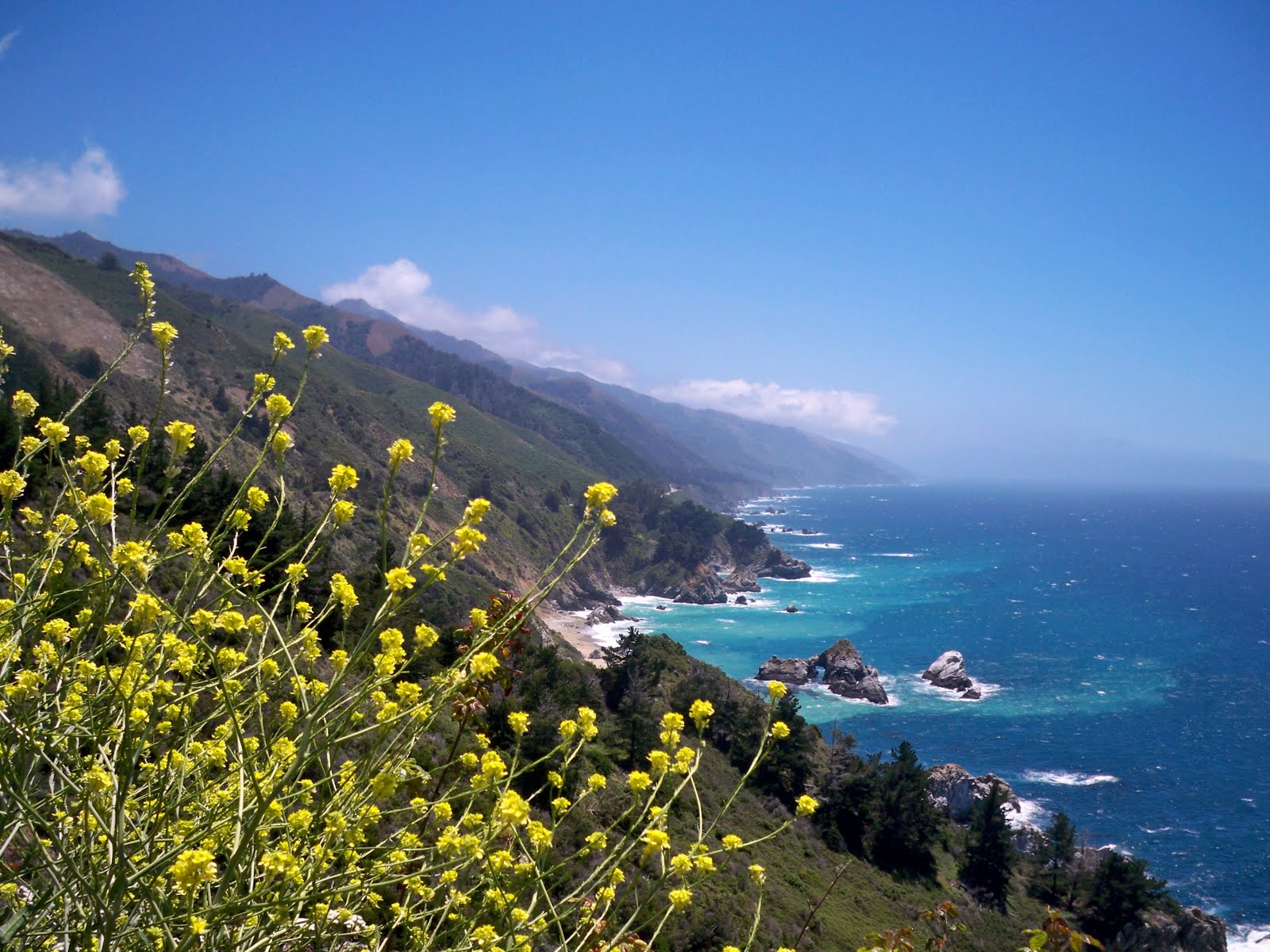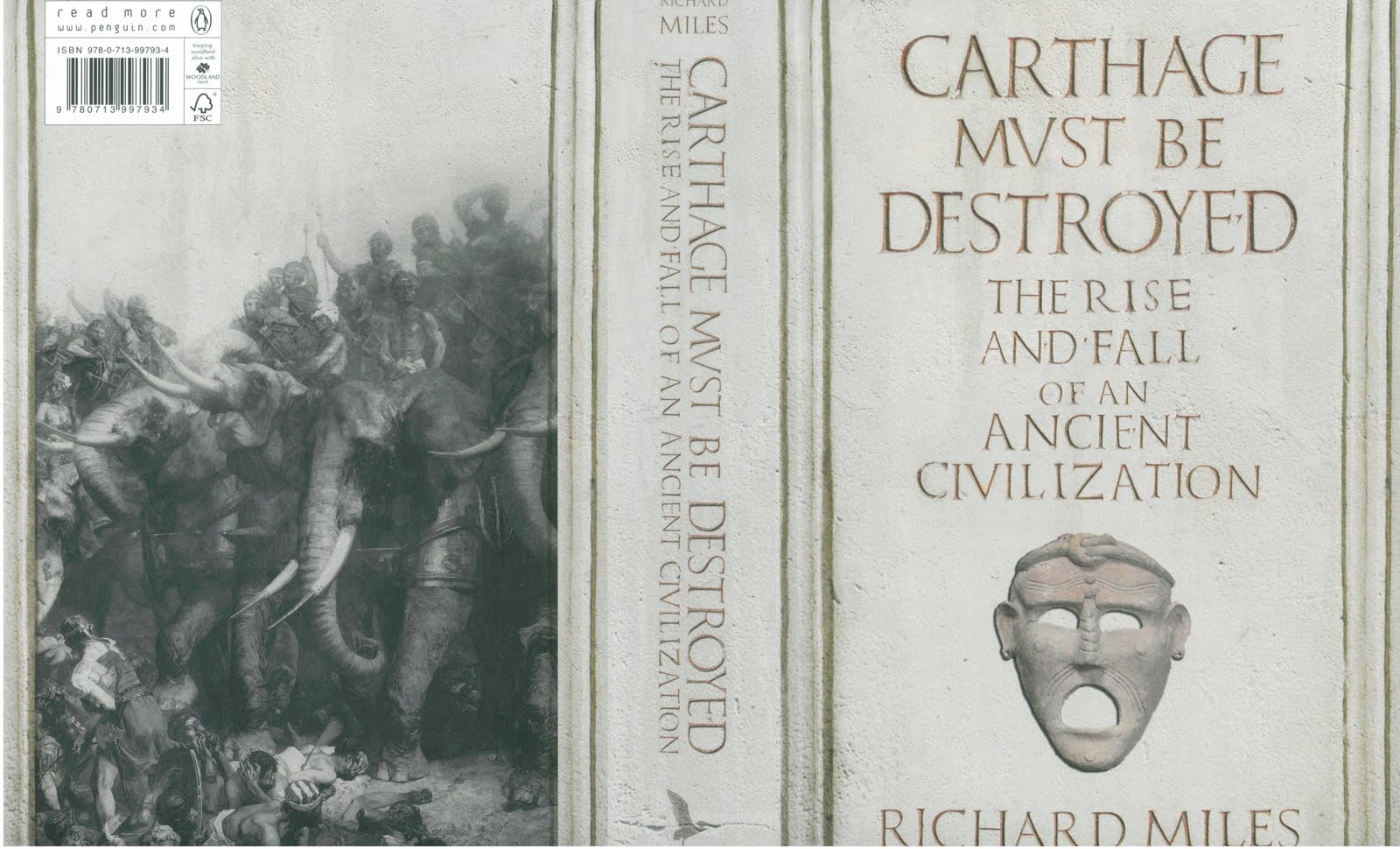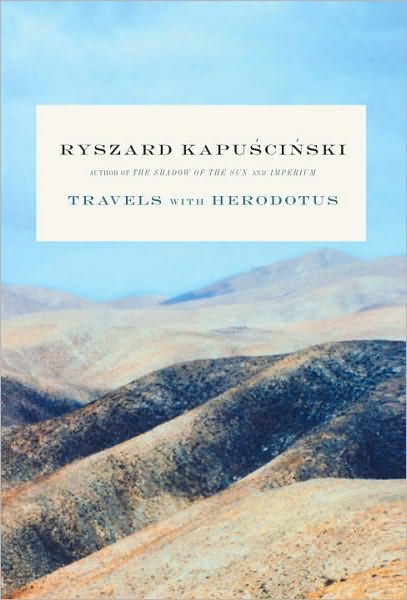Jacques-Louis David, “Leonidas at Thermopylae” (1814) Picture and poem shamelessly lifted from Stephen Pentz Thermopylae Honor to those who in the life they lead define and guard a Thermopylae. Never betraying what is right, consistent and just in all they do but showing pity also, and compassion; generous when they are rich, and when they […]
Author: Dwight
Priestess of Delphi, John Collier (1891)Picture source For the Athenians had prepared to consult the oracle by sending sacred delegates to Delphi, who, after performing the usual preliminaries at the sanctuary, entered the inner shrine and took their seats. The Pythia, whose name was Aristonike, gave them the following oracular response: Why sit so idle, […]
I have now reached a point at which I am compelled to declare an opinion that will cause offense to many people, but which nevertheless appears to me to be true, so I shall not restrain myself. If the Athenians had evacuated their land in terror of the danger approaching them, or if they had […]
“I’m feeling thankful for the small things today” While I was gone from home the boys developed colds, the dog tried to have puppies, and I am overwhelmed by the emails and voice mails that are piled up at work. Be that as it may, I will still celebrate the start of my 50th year […]
Internet access will be uncertain for the next week. Hopefully I’ll find a nice sea-wet rock where I can comb (what’s left of) my hair…hopefully with better terms than the Spartans (and others) had to deal with. THE ORACLES A. E. Housman ‘Tis mute, the word they went to hear on high Dodona mountain When winds […]
(enlarge for detail) I saw Marathon: The Battle That Changed Western Civilization by Richard A. Billows was released last month and I wanted to find out more about it. I’m not sure if the typo in the attached screen-grab of the Amazon.com page came from the original review or not, but I wanted to share […]
But at this time [490 BC], Nikodromos led the common people in an attempted revolt, which was put down by the affluent Aeginetans [Aegina is an island southwest of Athens]. The victors led out the captive rebels in order to execute them, and because of what happened next, they came under a curse that they […]
The burial mound (Soros) and grave stela at Marathon Picture source: courtesy of www.traveladventures.orgThe Athenians, as defenders of the Hellenes, in Marathon destroyed the might of the golden-dressed Medes – composed by Simonides The Soros, the extraordinary burial mound built over the graves of the Athenian troops who died at Marathon. The bones of Athenian […]
The Alkmeonids were illustrious among the Athenians from their very beginnings, but became even more so because of Alkmeon and later Megakles. For Alkmeon son of Megakles enthusiastically assisted and proved himself an avid supporter of those Lydians who used to come from Sardis, being sent by Croesus to the oracle at Delphi. When Croesus […]
click to enlarge From Hark! A Vagrant by Kate Beaton, a lighthearted look at the attribution and problems with the title “The Father of History”. Click through to the archives for more comics, including quite a few on history and literature.
Picture source Map (at source) is interactive Although Athens had been a great city before, it became even greater once rid of its tyrants. – from Paragraph 66 So the Athenians had increased in strength, which demonstrates that an equal voice in government has beneficial impact not merely in one way, but in every way: […]
Picture sourceSince I’m behind on writing anything, I wanted to post an excerpt from Book Five of The Histories. This is from the speech of Sokleas of Corinth as he rebukes the Spartans for wanting to return tyrants to Athens. From Paragraph 92: “After he [Kypselos] had ruled for thirty years and had woven out […]
Sergey Larenkov has overlaid recent photographs of St. Petersburg with pictures taken during the Leningrad siege of World War II. In keeping the same location and perspective, the juxtaposition can be eerie and moving. Not all the combinations work, but the ones that do are a fascinating blend of past and present. Part One Part […]
Following the capture of Babylon, Darius led an army against Scythia. For Asia was flourishing; it had both numerous fighting men and ample revenues, and Darius had developed a desire to punish the Scythians for having earlier invaded Media and having conquered those who had tried to oppose them; for in doing this the Scythians […]
Picture source The first of several summer family trips will keep me away from the computer over an extended weekend. Withdrawl pangs start in 10… 9…
Carthage Must Be Destroyed: The Rise and Fall of an Ancient Civilization by Richard Miles 560 pages, Allen Lane, £30 ISBN: 978-0-713-99793-4 Attempts to conjure up contemporary relevance with regard to the ancient world can often appear trite and laboured at best, and fatuous and false at worst. However, the history of Carthage does force […]
Ryszard Kapuściński’s Travels with Herodotus is a marvelous half-memoir of his career and half-reflection on Herodotus’ The Histories. Other than a few articles I’ve read over the years, this is my first extended exposure to Kapuściński. I have definitely shortchanged myself in not reading more of his work before now. Kapuściński was a Polish journalist/correspondent […]
In 249 BC the Roman consul Publius Claudius Pulcher—a man variously described as being mentally unstable, an arrogant snob and a drunk—decided to launch an attack on the Carthaginian-held port of Drepana [on Sicily]. The mission got off to a rocky start when the sacred chickens used to gauge divine favour went off their feed, […]
The lack of recent posts is tied to summer fun with the family and too much work, not to lack of reading. Hopefully I’ll be able to post on the following books/chapters before an upcoming trip: Book 4 of The Histories–the Scythian chapter, or Darius invades Europe. After finishing this chapter my first time through […]
I have already mentioned where the author of this account came from; and now I shall tell you what I heard about him in Proconnesus and Cyzicus. Aristeas, they say, was in lineage the equal or superior of any citizen in his town. One day he entered a fuller’s shop in Proconnesus and dies there, […]
